Find Help
More Items From Ergsy search
-
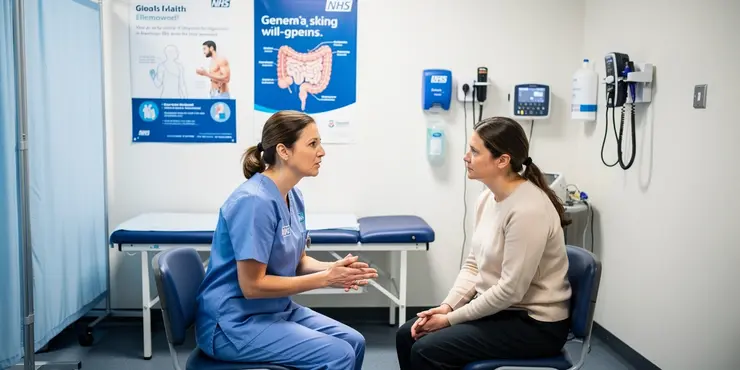
Symptoms of irritable bowel syndrome (IBS)
Relevance: 100%
-
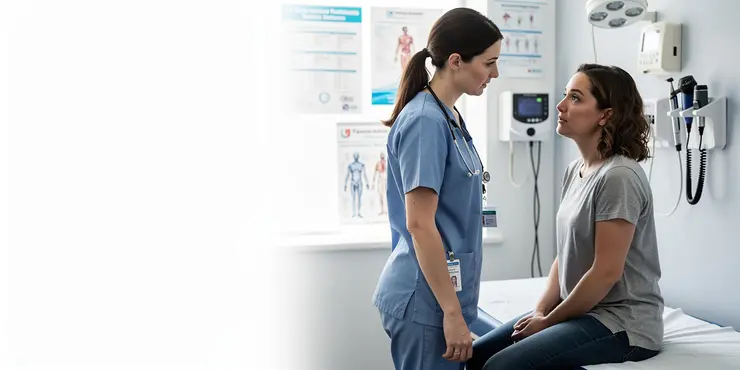
What is irritable bowel syndrome (IBS)?
Relevance: 99%
-
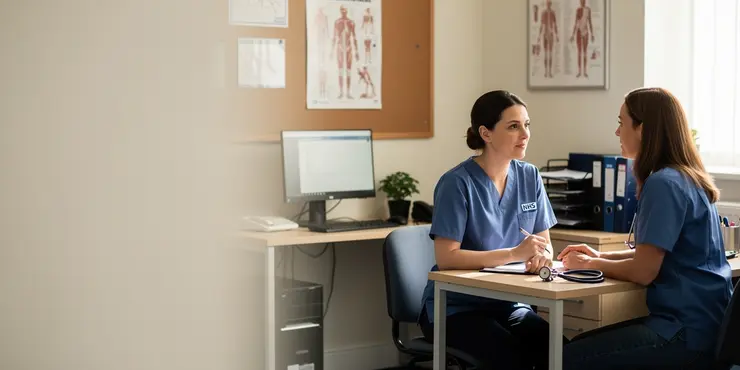
About irritable bowel syndrome (IBS)
Relevance: 98%
-
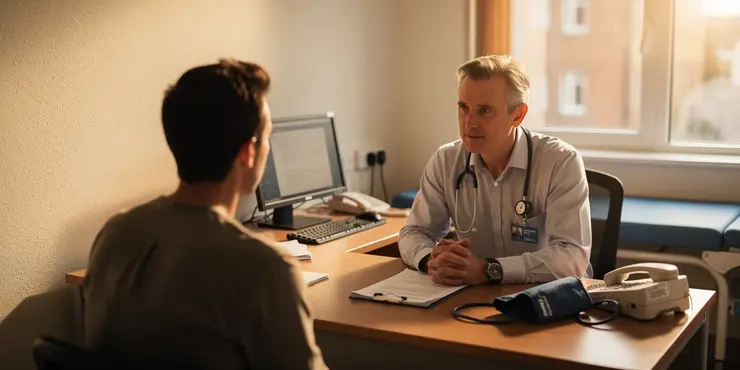
Diagnosing irritable bowel syndrome (IBS)
Relevance: 98%
-
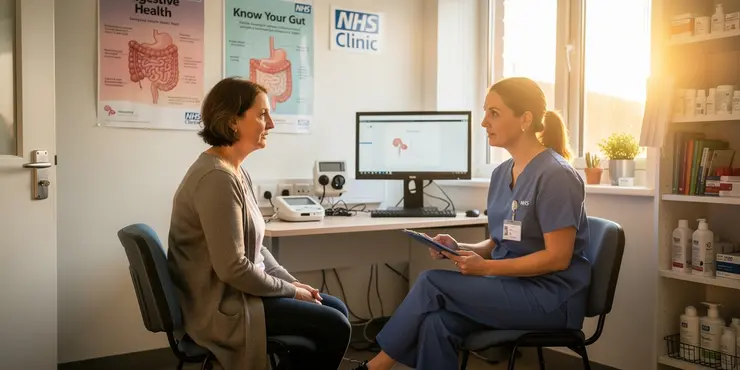
About irritable bowel syndrome (IBS)
Relevance: 98%
-
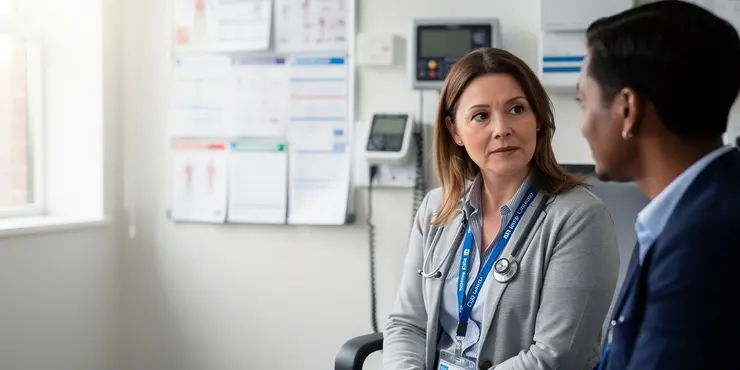
What is irritable bowel syndrome (IBS)?
Relevance: 97%
-
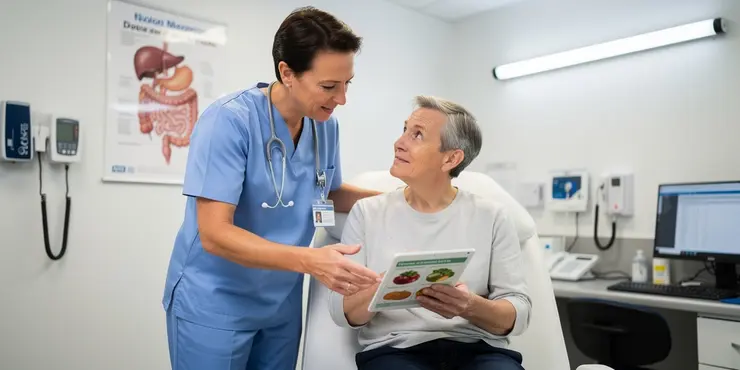
Treating irritable bowel syndrome (IBS)
Relevance: 96%
-
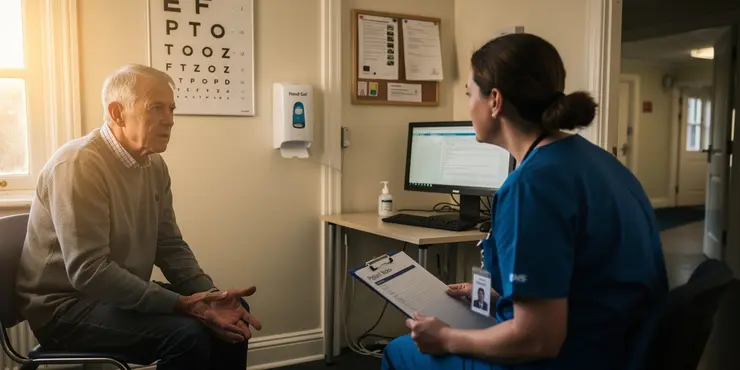
Causes of irritable bowel syndrome (IBS)
Relevance: 95%
-
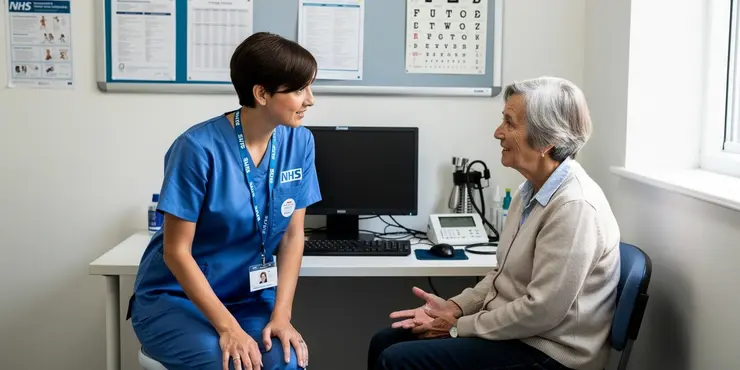
Causes of irritable bowel syndrome (IBS)
Relevance: 94%
-

Treating irritable bowel syndrome (IBS)
Relevance: 91%
-

Symptoms of irritable bowel syndrome (IBS)
Relevance: 90%
-
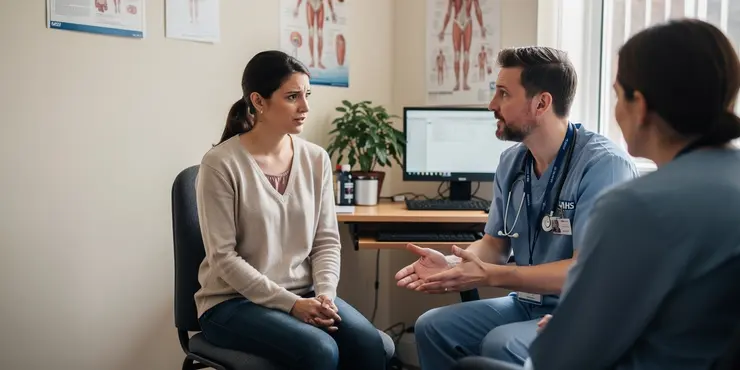
IBS and your mind: Is there a connection?
Relevance: 58%
-
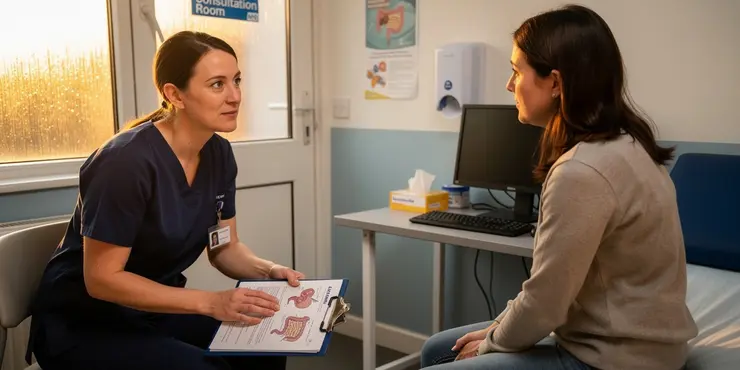
IBS and your mind: Is there a connection?
Relevance: 58%
-
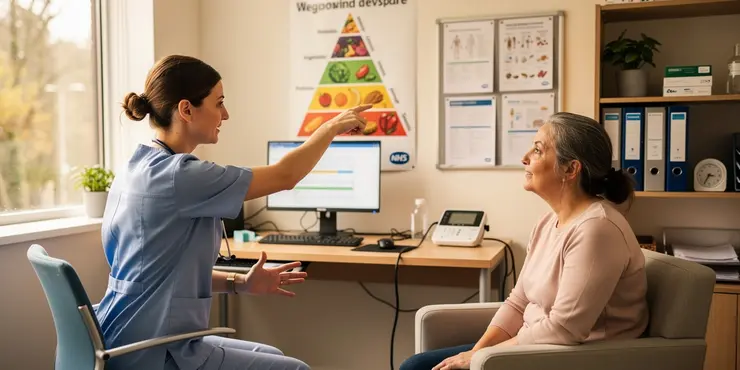
Does your diet affect IBS?
Relevance: 48%
-
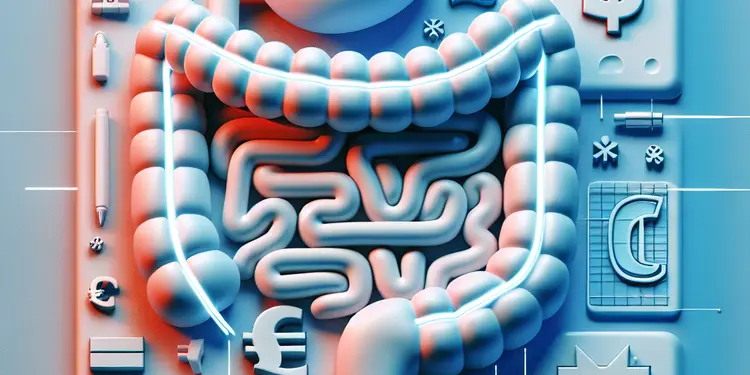
Are there specific gut-related diseases that become more common with age?
Relevance: 33%
-
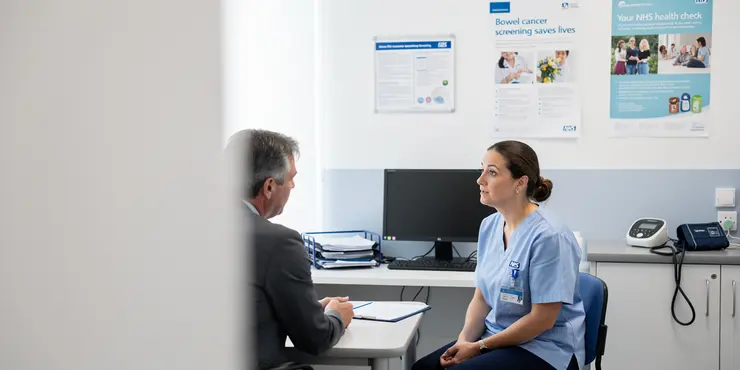
Taking a Genetic Family History - The Conversation (Bowel Cancer)
Relevance: 31%
-
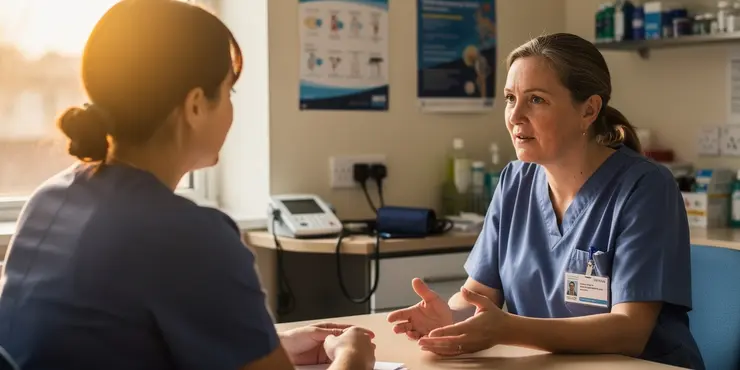
What are the side effects of bowel cancer treatment?
Relevance: 31%
-

Why is there a surge in bowel cancer?
Relevance: 31%
-
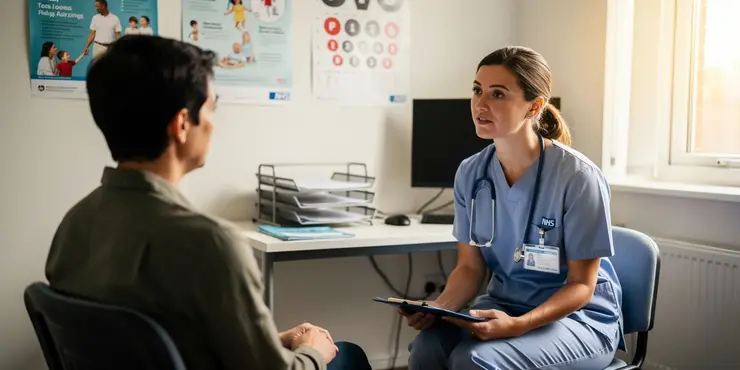
How does family history affect the risk of bowel cancer?
Relevance: 30%
-
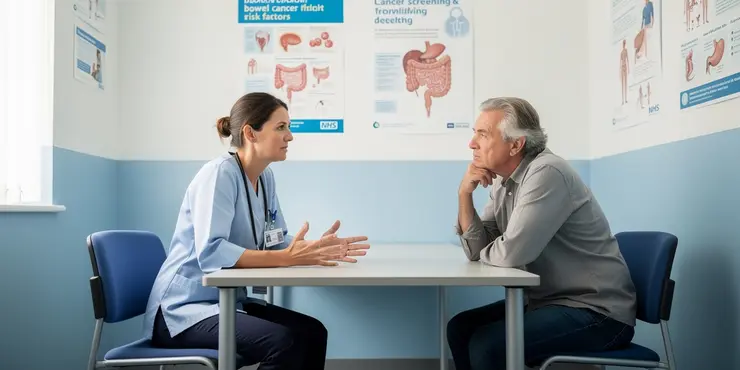
What are the risk factors for bowel cancer?
Relevance: 30%
-
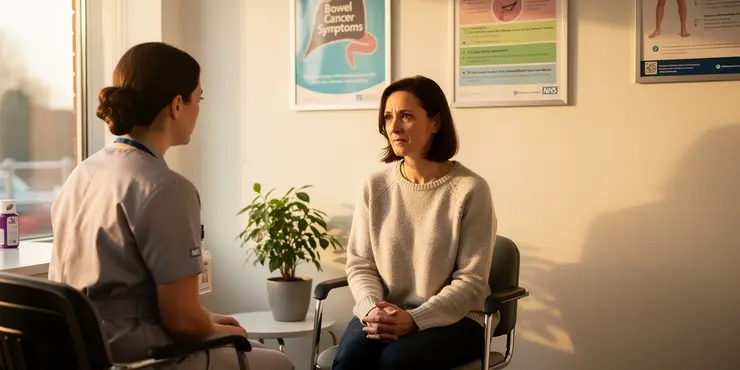
What is Bowel Cancer?
Relevance: 29%
-
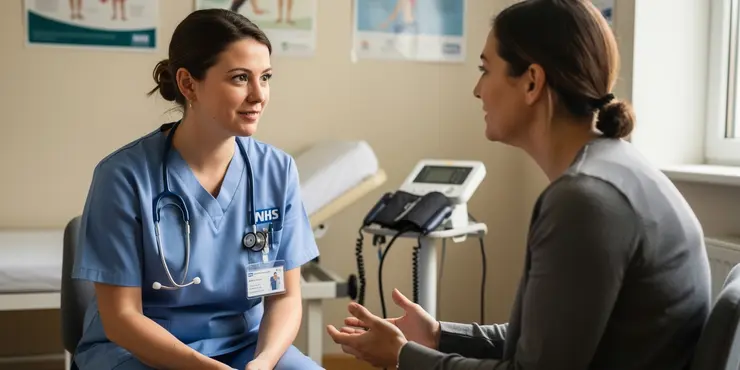
How common is bowel cancer?
Relevance: 27%
-
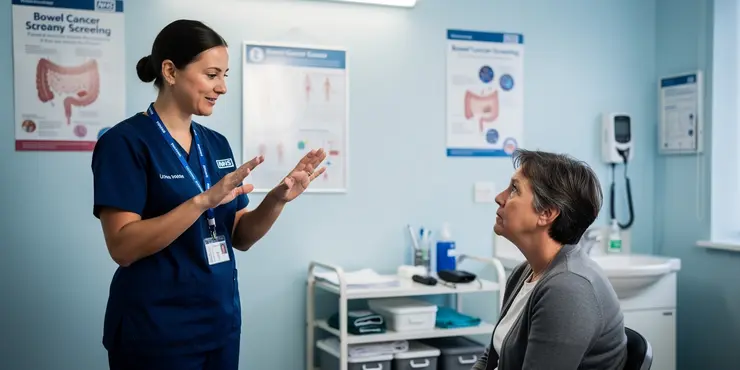
Learn about bowel cancer (British Sign Language version)
Relevance: 27%
-
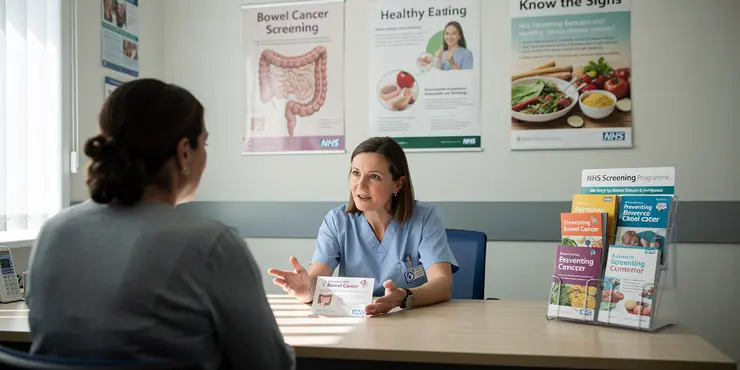
Can bowel cancer be prevented?
Relevance: 27%
-
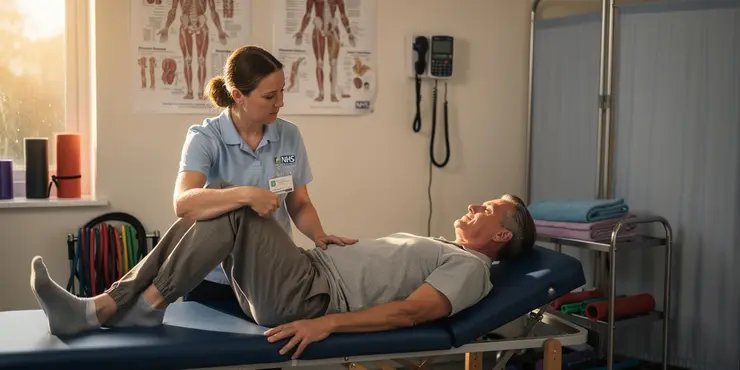
Exercises for sciatica: piriformis syndrome | NHS
Relevance: 26%
-

What factors are contributing to the increase in bowel cancer cases?
Relevance: 26%
-
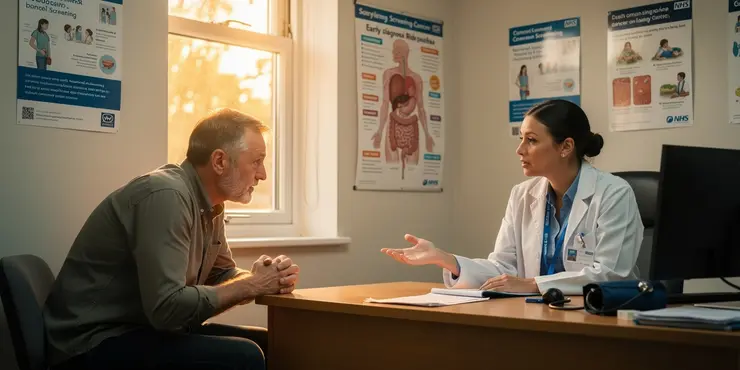
How is bowel cancer diagnosed?
Relevance: 26%
-

Is diet linked to the rise in bowel cancer?
Relevance: 25%
-

What is Cushing's syndrome?
Relevance: 25%
-
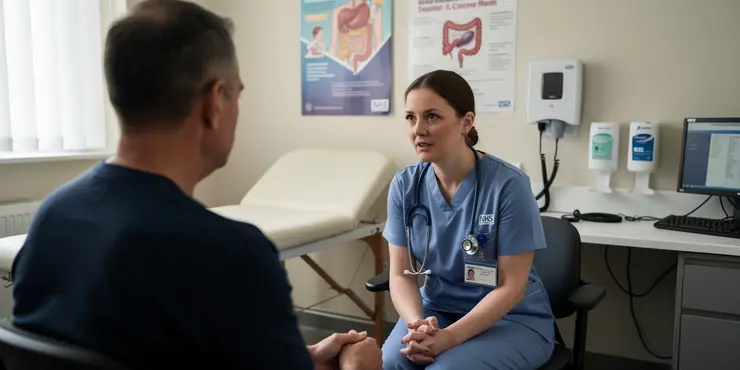
What is the survival rate for bowel cancer?
Relevance: 25%
-
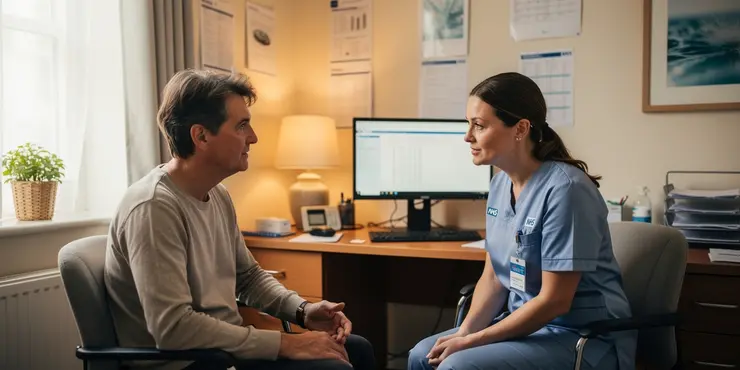
Munchausen's syndrome | NHS
Relevance: 25%
-

Are younger people being diagnosed with bowel cancer more frequently?
Relevance: 24%
-

Bowel cancer - Symptoms and signs to look out for
Relevance: 24%
-
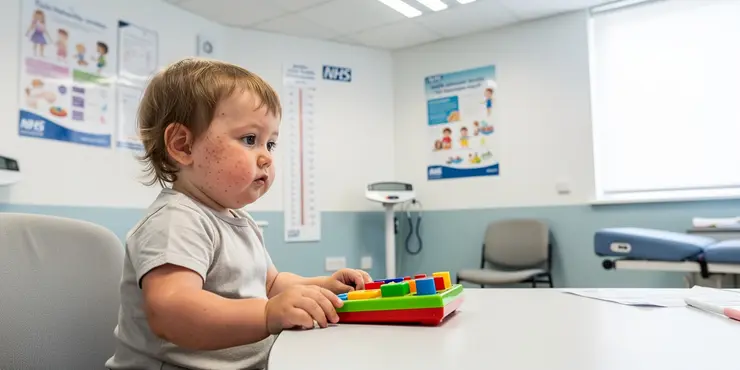
Prader-Willi Syndrome | NHS
Relevance: 24%
-
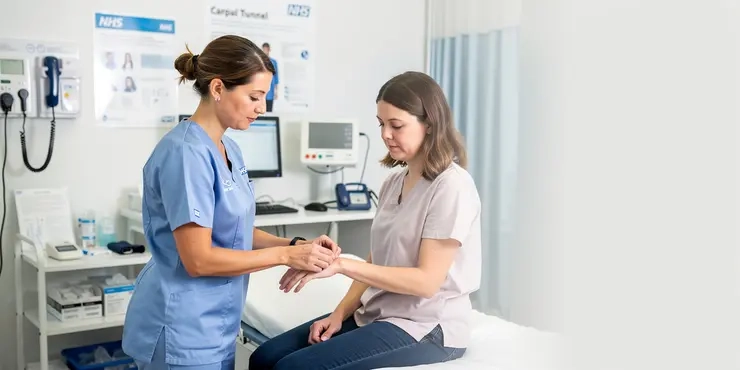
Carpal Tunnel Syndrome
Relevance: 24%
-
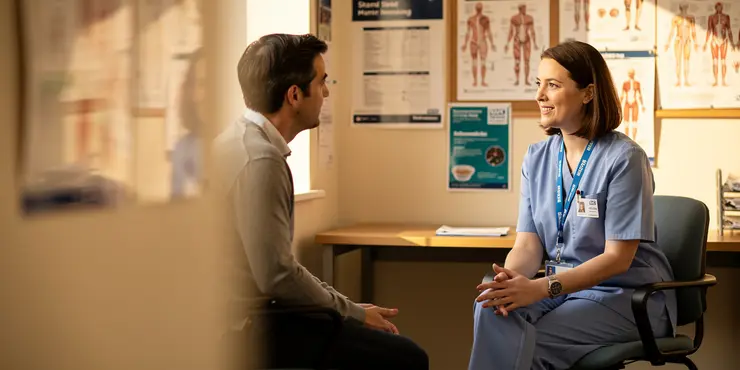
What treatment options are available for bowel cancer?
Relevance: 24%
-
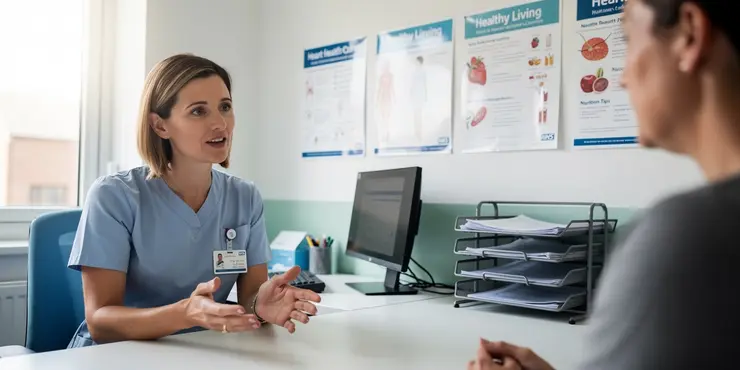
What lifestyle changes can help lower the risk of bowel cancer?
Relevance: 23%
-
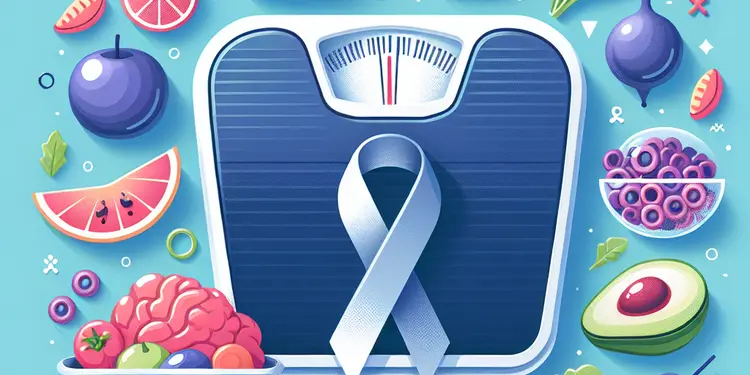
How does obesity affect bowel cancer rates?
Relevance: 23%
-
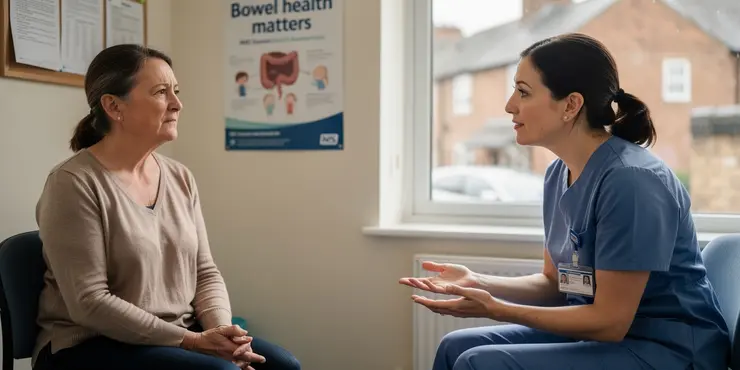
Can bowel cancer spread to other parts of the body?
Relevance: 23%
-
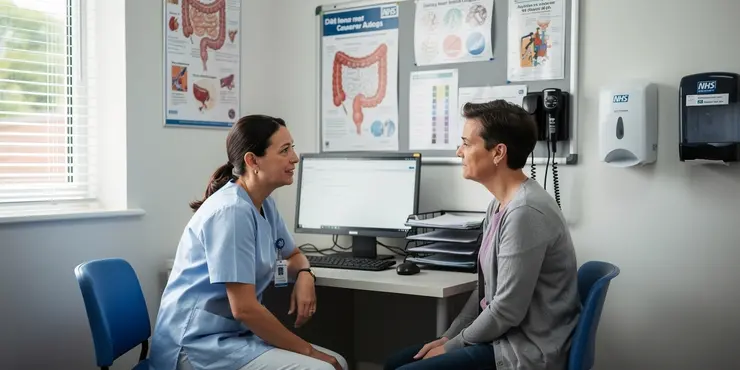
How is the stage of bowel cancer determined?
Relevance: 23%
About Irritable Bowel Syndrome (IBS)
What is IBS?
Irritable Bowel Syndrome (IBS) is a common chronic gastrointestinal disorder that affects the large intestine. The condition is characterized by a variety of symptoms including abdominal pain, bloating, cramping, gas, and alterations in bowel habits, which may range from diarrhoea to constipation. Despite being uncomfortable and sometimes debilitating, IBS does not cause any permanent damage to the bowels or lead to more serious diseases such as cancer.
Causes of IBS
The exact cause of IBS remains largely unknown. However, several factors are known to contribute to the development and exacerbation of the condition. These include abnormalities in the gut-brain interaction, gastrointestinal motility issues, heightened pain sensitivity, and issues with gut flora. Stress and anxiety, as well as certain types of food, can also act as triggers. It's widely observed that symptoms can worsen after consuming dairy products, spicy foods, caffeine, or alcohol.
Symptoms of IBS
Symptoms of IBS can vary greatly from person to person. Common signs include recurrent discomfort or pain in the abdomen, which often improves after a bowel movement. Other symptoms include bloating, excess gas, and noticeable changes in bowel habits, such as diarrhoea, constipation, or alternating between the two. These symptoms can be mild to severe and may come and go or persist over time.
Managing IBS
While there is no cure for IBS, various approaches can help manage and alleviate the symptoms. Dietary modifications are often the first step; a diet low in FODMAPs (fermentable oligosaccharides, disaccharides, monosaccharides, and polyols) has shown effectiveness in many cases. Medications such as antispasmodics, laxatives, or anti-diarrhoeal agents can also provide relief. In some instances, probiotics or psychological therapies like cognitive behavioural therapy (CBT) may be recommended. Regular exercise and stress management techniques are similarly important for overall well-being.
Seeking Medical Advice in the UK
If you suspect you have IBS, it is crucial to consult with a healthcare professional for proper diagnosis and tailored treatment plans. In the United Kingdom, IBS is usually diagnosed based on symptom patterns and by ruling out other conditions. General Practitioners (GPs) can provide initial consultation and may refer patients to a gastroenterologist for further evaluation. The NHS provides comprehensive resources and support for managing IBS, including access to dietitians and psychological services if needed.
About Irritable Bowel Syndrome (IBS)
What is IBS?
IBS is a tummy problem that many people have. It affects the large intestine. With IBS, you might feel tummy pain, bloating, cramps, and have gas. Your toilet habits can change too. You might have diarrhoea or constipation. IBS can be very uncomfortable, but it won't damage your tummy for good, and it won't lead to anything serious like cancer.
Causes of IBS
No one knows exactly what causes IBS. But some things might make it happen or make it worse. These include problems with how the brain and tummy work together, how the intestines move, and how sensitive you are to pain. The type of bacteria in your tummy might also play a role. Stress, feeling worried, and some foods can make IBS worse. Many people find that eating dairy, spicy foods, caffeine, or alcohol makes their symptoms flare up.
Symptoms of IBS
IBS symptoms can be different for everyone. You might feel pain or a funny feeling in your tummy, and it often gets better after going to the toilet. You might also have bloating, lots of gas, and changes in your toilet habits, like diarrhoea or constipation. These symptoms can be mild or strong and might come and go.
Managing IBS
There is no cure for IBS, but you can do things to help feel better. Changing what you eat is a good first step. Some people find that eating less FODMAP foods helps. These are certain types of carbohydrates. Medicines like antispasmodics, laxatives, or anti-diarrhoea tablets might also help. Sometimes, probiotics or therapies like talking to someone (CBT) are suggested. Exercising and finding ways to relax can also help you feel better overall.
Seeking Medical Advice in the UK
If you think you have IBS, it's important to talk to a doctor. They can check what is going on and help with a plan just for you. In the UK, doctors usually decide if you have IBS by looking at your symptoms and making sure it's not something else. Your GP can start by helping you, and they might send you to see a tummy specialist called a gastroenterologist if needed. The NHS has lots of information and help for dealing with IBS, including meeting with dietitians or talking with someone if you need support.
Frequently Asked Questions
What is Irritable Bowel Syndrome (IBS)?
Irritable Bowel Syndrome (IBS) is a common condition that affects the digestive system. It causes symptoms like stomach cramps, bloating, diarrhoea, and constipation. These tend to come and go over time, and can last for days, weeks, or months at a time.
What are the symptoms of IBS?
The main symptoms of IBS include stomach pain or cramps, bloating, diarrhoea, and constipation. Other symptoms can include excessive wind, a feeling of not having fully emptied your bowels, and mucus in your stools.
What causes IBS?
The exact cause of IBS is unknown, but it's thought to be related to problems with digestion and increased sensitivity of the gut. Triggers can include certain foods, stress, and a gastrointestinal infection.
How common is IBS in the UK?
IBS is a common condition in the UK, affecting an estimated 1 in 5 people at some point in their lives. It is more common in women than in men and usually develops when a person is in their twenties.
Can IBS be cured?
There is no cure for IBS, but the symptoms can often be managed with lifestyle changes, dietary adjustments, and sometimes medications.
How is IBS diagnosed?
IBS is usually diagnosed based on symptoms and by ruling out other conditions. Your GP may also suggest some tests such as blood tests or a stool sample to make sure you don't have any other conditions.
What dietary changes can help manage IBS symptoms?
Dietary changes can include avoiding trigger foods such as certain types of fibre, caffeine, alcohol, and high-fat foods. Some people find relief by following the low FODMAP diet, which involves avoiding certain carbohydrates that can trigger symptoms.
Are there any medications for IBS?
Yes, there are medications that can help relieve symptoms of IBS. These can include antispasmodics to reduce stomach cramps, laxatives to relieve constipation, and antimotility medicines to reduce diarrhoea.
How does stress affect IBS?
Stress can be a significant trigger for IBS symptoms as it affects the gut-brain interaction. Reducing stress through techniques like mindfulness, meditation, or counselling can be beneficial in managing symptoms.
Is IBS a serious condition?
IBS is not a life-threatening condition, but it can significantly affect your quality of life. Managing the symptoms effectively is important to maintaining daily activities and overall well-being.
Can exercise help with IBS symptoms?
Regular exercise can help to relieve stress, improve bowel function, and reduce symptoms of IBS. Activities like walking, swimming, and yoga can be particularly beneficial.
Can probiotics help with IBS?
Some people with IBS may find that probiotics help to reduce symptoms like bloating and gas. However, the evidence is mixed, and different strains of probiotics may have different effects.
Is there any link between IBS and other conditions?
People with IBS may also have other chronic conditions such as fibromyalgia, chronic fatigue syndrome, and mental health issues like anxiety and depression. Managing these conditions can also help manage IBS symptoms.
What lifestyle changes can help manage IBS?
Lifestyle changes that can help include eating smaller meals more frequently, staying hydrated, avoiding trigger foods, managing stress, getting regular exercise, and ensuring you get enough sleep.
Should I see a doctor if I think I have IBS?
Yes, it's important to see your GP if you experience IBS symptoms. They can help diagnose the condition, rule out other possible causes, and suggest an appropriate treatment plan to manage your symptoms.
What is Irritable Bowel Syndrome (IBS)?
Irritable Bowel Syndrome, or IBS, is when your tummy hurts. It can make you feel like you need to run to the bathroom a lot. Sometimes, your tummy might feel too full or bloated. It can also make it hard to poo.
If you think you have IBS, talk to a doctor. They can help you feel better.
Here are some tips to help your tummy:
- Eat slowly and chew your food well.
- Try to eat at the same times each day.
- Drink plenty of water.
- Keep a food diary to see what foods upset your tummy.
Remember, it's important to speak with a doctor for advice that’s right for you.
Irritable Bowel Syndrome (IBS) is a health problem that affects your tummy. People with IBS might feel tummy pain, bloating, have runny poos, or hard poos. These feelings can come and go, and they might stay for a short or long time.
What are the signs of IBS?
People with IBS often have tummy pain or cramps. Their tummy might also feel full and big. They might have runny poo, called diarrhoea, or have trouble doing poo, called constipation.
Some other things they might feel are: needing to fart a lot, a feeling like they still need to poo even after going, and having sticky stuff, called mucus, in their poo.
Using simple words and breaking down these ideas can help. If you find reading tricky, try reading with someone or use a tool that reads the text out loud. You can also take breaks if reading becomes hard.
What makes IBS happen?
IBS stands for Irritable Bowel Syndrome. This is a tummy problem.
Doctors are not sure why IBS happens. Here are some things that might cause it:
- Food: Some people with IBS have trouble after eating certain foods. Keeping a food diary might help you see which foods upset your tummy.
- Stress: Feeling worried or nervous can make IBS worse. Try to relax and do things that make you feel calm.
- Gut problems: Sometimes the tummy muscles move food too quickly or too slowly. This can cause IBS.
- Signals: The brain and tummy send signals to each other. Sometimes these signals don’t work right in people with IBS.
If you think you have IBS, talk to your doctor. They can help you feel better.
Tools that can help:
- Food diary
- Relaxation exercises
- Talking to a doctor or nurse
Doctors don't know exactly why people get IBS. IBS is a short way of saying Irritable Bowel Syndrome. It might happen because of how our stomach works. People with IBS have tummies that might be more sensitive. Certain foods, feeling worried or stressed, and having a tummy infection can make IBS worse.
If you have IBS, it's important to talk to a doctor. There are also some things that can help, like:
- Eating slowly and chewing food well.
- Keeping a diary of foods you eat and how they make you feel.
- Practicing relaxation techniques like deep breathing.
How many people have IBS in the UK?
Lots of people in the UK have a tummy problem called IBS.
IBS stands for Irritable Bowel Syndrome.
If 100 people were in a room, 10 to 20 of them might have IBS.
This means it's quite common.
If you have questions about IBS, you can talk to a doctor or nurse.
You can also find books with pictures, listen to stories, or watch videos to learn more.
IBS is something that many people in the UK have. It affects about 1 in every 5 people. More women get IBS than men. It usually starts when people are in their twenties.
Can IBS be made better?
IBS stands for Irritable Bowel Syndrome. It can make your stomach feel uncomfortable. Right now, there is no medicine that can make IBS go away forever, but there are ways to help it feel better.
Here are some things that might help:
- Healthy Eating: Eating healthy foods can help your tummy feel better.
- Regular Exercise: Moving your body can be good for your stomach.
- Stress Relief: Being calm and relaxed can help. Try deep breathing or listening to music.
- Talking to a Doctor: A doctor can give advice and medicine to help you feel better.
Tools that can help:
- Symptom Diary: Writing down when your tummy hurts can help find out what makes it worse.
- Yoga or Meditation: These activities can help you feel calm and relaxed.
Remember, everyone is different. What helps one person might not help another, so it's important to find what works for you.
There is no cure for IBS, but you can often feel better by changing how you live, what you eat, and sometimes by taking medicine.
How do doctors find out if someone has IBS?
Doctors talk to the person about their tummy problems. They ask questions and listen to what hurts. The doctor might ask about:
- Stomach pain
- Runny or hard poo
- If the person feels better after going to the toilet
Sometimes the doctor needs to do tests to look inside the tummy. These tests make sure it is IBS and not something else.
If you feel worried, you can ask someone to come with you to the doctor. They can help you remember what the doctor says.
Doctors find out if you have IBS by looking at your symptoms and checking for other health problems. Your doctor might ask for a blood test or a sample of your poo to make sure nothing else is wrong.
Tools and tips to help:
- Use a diary to track your symptoms and share it with your doctor.
- Ask your doctor any questions you have—they're there to help.
- Use apps or websites that explain IBS in a simple way.
What can I eat to help with IBS?
If you have IBS (Irritable Bowel Syndrome), changing what you eat might help. Here are some tips:
- Eat slowly and chew your food well.
- Try to eat smaller meals more often instead of big meals.
- Avoid foods that make you feel worse. This could be spicy foods or foods high in fat.
- Drink plenty of water every day.
- Eat more fiber like fruits, vegetables, and whole grains.
- Keep a food diary to track what you eat and how it makes you feel.
If you are not sure what to eat, it can help to talk to a doctor or a dietitian. They can give you good advice about what foods are best.
Using a food diary can help you see which foods are good and which foods cause problems. Keeping notes can be a useful trick.
Changing what you eat can help your tummy feel better. Try not to eat foods that upset your tummy, like some types of fiber, caffeine (in coffee and tea), alcohol, and foods with a lot of fat. A special way of eating called the low FODMAP diet can also help some people. This means avoiding some kinds of carbs that can make your tummy hurt.
Here are some ways to help you:
- Use pictures or diagrams to understand which foods to avoid.
- Keep a simple food diary to see which foods make you feel good or bad.
- Ask a grown-up for help with meals, or talk to a doctor or a dietitian.
Is there medicine for IBS?
Yes, there are medicines that can help with IBS. IBS is a tummy problem that can hurt. There are different kinds of medicines:
- Some help stop tummy cramps. Tummy cramps are when your tummy hurts a lot.
- Some help you go to the toilet if you can't poo (constipation).
- Some help you stop needing to go to the toilet too much (diarrhoea).
You can also talk to a doctor or nurse. They can help you find the right medicine.
How does stress affect IBS?
Some people have a tummy problem called IBS. This means Irritable Bowel Syndrome. Strong feelings like worry and stress can make IBS worse. Stress can make your tummy hurt more.
To feel better, try to relax. You can take deep breaths or listen to calm music. Talking to someone you trust can also help.
Stress can make IBS (Irritable Bowel Syndrome) worse because it affects how the brain and tummy talk to each other. Doing things to feel calm, like mindfulness, meditation, or talking to someone who can help, might make you feel better.
Is IBS a big problem?
IBS means Irritable Bowel Syndrome. It can make your tummy hurt, give you cramps, or make you need the toilet a lot. It is not nice, but IBS does not make your body very sick like other serious illnesses. It is a problem, but it is not dangerous.
Doing some things can help you feel better:
- Eat slowly and chew your food well.
- Try not to eat too much spicy or greasy food.
- Drink enough water every day.
- Exercise a little bit each day.
Talking to a doctor can help. They can give you good advice and medicine if you need it. Also, a diary might help you see which foods or activities make your tummy feel bad.
IBS is not very dangerous, but it can make life harder. It's important to take care of it so you can feel good and do things every day.
Can exercise help with IBS symptoms?
Can moving your body help if you have a tummy problem called IBS? IBS stands for Irritable Bowel Syndrome. It can make your tummy hurt or feel funny.
Doing things like walking, running, or playing can be good for your body. It can help your tummy feel better.
Try to do some moving every day. You can ask someone to help you find fun ways to do it.
If you need help to feel better, talk to a doctor or use apps that help with moving your body.
Doing exercise can make you feel better and help your tummy work well. It can also help if you have tummy problems like IBS. Try things like walking, swimming, or yoga. They are really good for you.
Do probiotics help tummy troubles (IBS)?
Some people have tummy troubles called IBS. Probiotics are good bacteria. They live in your tummy. Eating probiotics might help your tummy feel better.
If your tummy hurts, try eating yogurt. Yogurt has probiotics. You can also ask a grown-up for help. They might get you probiotic tablets.
Always talk to a doctor if your tummy troubles don't go away.
Some people with tummy trouble called IBS might feel better if they take probiotics. Probiotics are tiny good germs that live in your tummy. They might help with feeling puffy and too much gas. But, they work differently for everyone, and not all probiotics are the same.
Does IBS have any connections with other health problems?
IBS stands for Irritable Bowel Syndrome. It is a tummy problem that can cause pain, bloating, or changes in going to the bathroom. IBS can sometimes be linked to other health issues.
Here is a simple way to think about it:
- Some people with IBS may also have other problems, like headaches, depression, or anxiety.
- IBS can sometimes be linked to food allergies or intolerances.
If you think you have IBS or another health problem, it is important to talk to a doctor.
Tools and tips to help understand:
- Use picture cards or drawings to explain health problems.
- Watch a video with easy words and pictures about IBS.
- Ask someone you trust to help explain what IBS is.
People with IBS might also have other long-lasting health problems. These can be things like fibromyalgia (which makes your body hurt), feeling really tired all the time, or feeling worried and sad. If you take care of these health problems, it can help you feel better with IBS too.
What changes can help with IBS?
You can feel better by doing some simple things. Try eating smaller meals more often instead of big ones. Drink lots of water to stay healthy. Stay away from foods that make you feel bad. Try to relax and not worry too much. Move your body and exercise every day. Make sure you get plenty of sleep at night.
Here are some tools that can help: You can use a planner or calendar to remember meal times and exercise. Try listening to calming music to help with stress. Use a water bottle to drink enough water during the day. Reading a bedtime story can help you sleep better.
Should I see a doctor if I think I have IBS?
If your tummy hurts a lot or you feel bad in your tummy, it is a good idea to see a doctor.
A doctor can help you find out if you have IBS. IBS can make your tummy feel bad, and the doctor will know what to do.
You can bring a trusted person to help you talk to the doctor. Writing down your tummy feelings before you go can also help.
Yes, you should go to see your doctor if you have tummy troubles like IBS. Your doctor can help find out if it is IBS and make sure it's not something else. They can also suggest ways to help you feel better.
Useful Links
This website offers general information and is not a substitute for professional advice.
Always seek guidance from qualified professionals.
If you have any medical concerns or need urgent help, contact a healthcare professional or emergency services immediately.
Some of this content was generated with AI assistance. We’ve done our best to keep it accurate, helpful, and human-friendly.
- Ergsy carfully checks the information in the videos we provide here.
- Videos shown by Youtube after a video has completed, have NOT been reviewed by ERGSY.
- To view, click the arrow in centre of video.
- Most of the videos you find here will have subtitles and/or closed captions available.
- You may need to turn these on, and choose your preferred language.
- Go to the video you'd like to watch.
- If closed captions (CC) are available, settings will be visible on the bottom right of the video player.
- To turn on Captions, click settings .
- To turn off Captions, click settings again.
More Items From Ergsy search
-

Symptoms of irritable bowel syndrome (IBS)
Relevance: 100%
-

What is irritable bowel syndrome (IBS)?
Relevance: 99%
-

About irritable bowel syndrome (IBS)
Relevance: 98%
-

Diagnosing irritable bowel syndrome (IBS)
Relevance: 98%
-

About irritable bowel syndrome (IBS)
Relevance: 98%
-

What is irritable bowel syndrome (IBS)?
Relevance: 97%
-

Treating irritable bowel syndrome (IBS)
Relevance: 96%
-

Causes of irritable bowel syndrome (IBS)
Relevance: 95%
-

Causes of irritable bowel syndrome (IBS)
Relevance: 94%
-

Treating irritable bowel syndrome (IBS)
Relevance: 91%
-

Symptoms of irritable bowel syndrome (IBS)
Relevance: 90%
-

IBS and your mind: Is there a connection?
Relevance: 58%
-

IBS and your mind: Is there a connection?
Relevance: 58%
-

Does your diet affect IBS?
Relevance: 48%
-

Are there specific gut-related diseases that become more common with age?
Relevance: 33%
-

Taking a Genetic Family History - The Conversation (Bowel Cancer)
Relevance: 31%
-

What are the side effects of bowel cancer treatment?
Relevance: 31%
-

Why is there a surge in bowel cancer?
Relevance: 31%
-

How does family history affect the risk of bowel cancer?
Relevance: 30%
-

What are the risk factors for bowel cancer?
Relevance: 30%
-

What is Bowel Cancer?
Relevance: 29%
-

How common is bowel cancer?
Relevance: 27%
-

Learn about bowel cancer (British Sign Language version)
Relevance: 27%
-

Can bowel cancer be prevented?
Relevance: 27%
-

Exercises for sciatica: piriformis syndrome | NHS
Relevance: 26%
-

What factors are contributing to the increase in bowel cancer cases?
Relevance: 26%
-

How is bowel cancer diagnosed?
Relevance: 26%
-

Is diet linked to the rise in bowel cancer?
Relevance: 25%
-

What is Cushing's syndrome?
Relevance: 25%
-

What is the survival rate for bowel cancer?
Relevance: 25%
-

Munchausen's syndrome | NHS
Relevance: 25%
-

Are younger people being diagnosed with bowel cancer more frequently?
Relevance: 24%
-

Bowel cancer - Symptoms and signs to look out for
Relevance: 24%
-

Prader-Willi Syndrome | NHS
Relevance: 24%
-

Carpal Tunnel Syndrome
Relevance: 24%
-

What treatment options are available for bowel cancer?
Relevance: 24%
-

What lifestyle changes can help lower the risk of bowel cancer?
Relevance: 23%
-

How does obesity affect bowel cancer rates?
Relevance: 23%
-

Can bowel cancer spread to other parts of the body?
Relevance: 23%
-

How is the stage of bowel cancer determined?
Relevance: 23%


